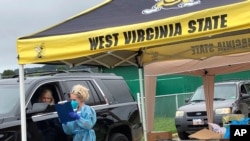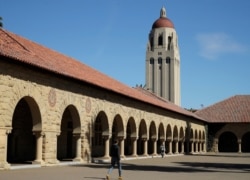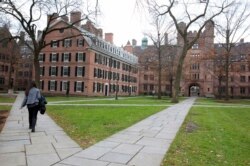Student Union
Screen College Students for COVID Every 2 Days, Researchers Advise

U.S.-based colleges and universities continue to struggle with how they will receive students while containing the spread of COVID-19.
Nearly 40% of schools say they will bring students back to campus, according to the Chronicle of Higher Education, which has compiled a database of college and university responses to COVID since the spring.
Even at schools where classes are 100% online, many students are living off-campus and taking online courses rather than remaining at home with their parents.
Researchers say schools would have to test their students every two days for COVID-19 to ensure their health and safety, and screening after symptoms emerge won’t control the spread, according to a study published July 31.
“We believe that there is a safe way for students to return to college in fall 2020,” the study authors wrote in JAMA Network, the publishing site of the Journal of the American Medical Association, on July 31.
“Screening every two days using a rapid, inexpensive, and even poorly sensitive test, coupled with strict interventions ... was estimated to yield a modest number of containable infections and to be cost-effective,” the authors wrote.
Another study by Cornell University in upstate New York suggested if students were tested every five days, that population would be safer in their campus bubble than the online student population, which would freely circulate where they reside.
But not every school is equipped to conduct COVID-19 testing at that pace because of staffing and cost.
At Mercer University in Macon, Georgia, the school community “must unilaterally share the responsibility of taking the necessary steps to minimize the risk of COVID-19 infections throughout our campuses.” Students will take a survey, and “may be required to be tested for the SARS-CoV-2 infection (COVID-19), depending on their survey responses. Regardless of survey results, any student may request and be tested for COVID-19.”
“Symptom-based screening alone was not sufficient to contain an outbreak,” the study authors wrote.
COVID-19 “can be transmitted by highly infectious but asymptomatic ‘silent spreaders,’” lead study author A. David Paltiel, Ph.D., of the Yale School of Public Health, described to VOA.
“It simply isn’t possible to move swiftly enough to contain an outbreak using nothing more than symptom-based monitoring. You can’t play catch-up with this virus,” Paltiel wrote.
“A school that tests and responds only when symptoms have been observed is like a fire department that responds only to calls when the house is already known to have burnt to the ground.”
At the State University of New York (SUNY) system, students are required to produce negative test results that were taken within 14 days before their arrival back to campus. The university asks them to quarantine between the test and receiving results, according to SUNY’s website.
“If you have symptoms consistent with COVID-19 or a temperature that is over 100 degrees Fahrenheit or 38 degrees Celsius, you will be directed to contact Student Health Services for an evaluation and a determination if you need to have a COVID-19 PCR test,” said the letter to students sent by Rick Gatteau, Stony Brook’s vice president for student affairs.
This, again, may be insufficient, the researchers said.
“Many schools are considering the option of carefully monitoring students for the symptoms of COVID-19 and using signs of illness to trigger isolation, contact tracing, and quarantine. We explored thousands of scenarios and failed to find even one plausible circumstance under which this strategy would be sufficient to contain an outbreak,” he wrote VOA.
“This sets a very high bar — logistically, financially, and behaviorally — that may be beyond the reach of many university administrators and the students in their care.”
At private universities like Stanford University in California, which has a $27.7 billion endowment, students will be tested for free.
“Each student will be tested twice: Once on approximately days 0-2 upon arrival, and then again on days 5-7 of their residence within Stanford housing. The tests will come at no cost to students,” according to the university’s COVID-19 FAQ’s page.
At Columbia University in New York City, all students, faculty and staff returning to campus will be required to take a COVID-19 test, they stated on their website.
“Students who test positive through the university testing program will be referred for contact tracing and will be required to isolate in designated on-campus rooms or in their off-campus residences until released by Yale Health,” Yale University stated on its webpage. “Medical monitoring and advice will be provided by Yale Health during isolation.”
Other educators say it is a struggle to manage social behaviors among young college students that might thwart their efforts.
University of Connecticut Professor Sherry Pagoto in the allied health sciences department, with graduate student Laurie Groshon, conducted student focus groups about returning to campus.
College students return to campus in a few weeks. We wanted to know their thoughts about quarantine, symptom tracking, contact tracing, and mask wearing on campus, so my grad student @laurie_groshon and I did focus groups to find out.
— Sherry Pagoto (@DrSherryPagoto) July 11, 2020
Here’s what students told us
1/x
“Every student we asked said that this is not realistic and will likely fail,” Pagoto tweeted.
“They pointed out that students are eager to see each other and will find a way to do so when they arrive on campus. They said that students who live one to two hours away will try to find a way to go home,” she tweeted. “They said off campus students will likely find their way on campus.”
Dr. Ravina Kullar, an infectious disease expert, backed up the students’ feedback.
“Preventing infection requires everyone to abide by strict infection control measures, including mask-wearing, hand hygiene, and social distancing on campus,” Kullar told VOA.
Colleges have a responsibility to supply students with adequate screening, masks and hand hygiene supplies, Kullar said, but success lies in the hands of the students and staff in abiding by strict COVID-guidance and not having mass social gatherings.
So many opportunities for exposure, and absolutely no routine testing. I'm worried.
— Dr. Theresa Chapple (@Theresa_Chapple) July 31, 2020
>
See all News Updates of the Day
- By VOA News
Competition grows for international students eyeing Yale

It’s tough to gain admission to Yale University, and it’s getting even tougher for international students as standout students from around the world set their sights on Yale.
The Yale Dale News, the campus newspaper, takes a look at the situation here.
- By VOA News
Student from Ethiopia says Whitman College culture made it easy to settle in

Ruth Chane, a computer science major from Ethiopia, writes about her experiences settling into student life at Whitman College in the U.S. state of Washington.
"The community at Whitman College made sure I felt welcomed even before I stepped foot on campus," she says.
- By VOA News
Claremont Colleges student gets a shock when she heads home to Shanghai

In The Student Life, the student newspaper for the Claremont Colleges, a consortium of five liberal art colleges and two graduate schools in Claremont, California, student Rochelle Lu writes about readjusting to her Shanghai home after spending a semester in the United States.
- By VOA News
Cedarville University aims to ease transition for international students

Cedarville University in the U.S. state of Ohio says it’s got more than 140 international students representing 44 countries.
Here, the school interviews Jonathan Sutton, director of international student services. He talks about his job and the opportunities for international students on campus.
- By VOA News
Morehouse College offers prospective students tips on applying and thriving

Morehouse College, a private, historically Black liberal arts college in the U.S. state of Georgia, offers a guide for international students interested in attending the school.
Among the tips to apply and thrive at Morehouse:
- Take advantage of the school’s orientation program
- Turn to the school’s Center for Academic Success for tutoring, support and more
- Immerse yourself in campus life via clubs and societies
- By Reuters
US reviews Columbia University contracts, grants over antisemitism allegations

The administration of President Donald Trump said on Monday it will review Columbia University's federal contracts and grants over allegations of antisemitism, which it says the educational institution has shown inaction in tackling.
Rights advocates note rising antisemitism, Islamophobia and anti-Arab bias since U.S. ally Israel's devastating military assault on Gaza began after Palestinian Hamas militants' deadly October 2023 attack.
The Justice Department said a month ago it formed a task force to fight antisemitism. The U.S. Departments of Health and Education and the General Services Administration jointly made the review announcement on Monday.
"The Federal Government's Task Force to Combat Anti-Semitism is considering Stop Work Orders for $51.4 million in contracts between Columbia University and the Federal Government," the joint statement said.
The agencies said no contracting actions had been taken yet.
"The task force will also conduct a comprehensive review of the more than $5 billion in federal grant commitments to Columbia University."
The agencies did not respond to requests for comment on whether there were similar reviews over allegations of Islamophobia and anti-Arab bias.
Columbia had no immediate comment. It previously said it made efforts to tackle antisemitism.
College protests
Trump has signed an executive order to combat antisemitism and pledged to deport non-citizen college students and others who took part in pro-Palestinian protests.
Columbia was at the center of college protests in which demonstrators demanded an end to U.S. support for Israel due to the humanitarian crisis caused by Israel's assault on Gaza. There were allegations of antisemitism and Islamophobia in protests and counter-protests.
During last summer's demonstrations around the country, classes were canceled, some university administrators resigned and student protesters were suspended and arrested.
While the intensity of protests has decreased in recent months, there were some demonstrations last week in New York after the expulsion of two students at Columbia University-affiliated Barnard College and after New York Governor Kathy Hochul ordered the removal of a Palestinian studies job listing at Hunter College.
A third student at Barnard College has since been expelled, this one related to the occupation of the Hamilton Hall building at Columbia last year.
Canada’s immigration overhaul signals global shift in student migration
From Europe to North America, nations are tightening their immigration policies. Now Canada, long seen as one of the world's most welcoming nations, has introduced sweeping changes affecting international students. The reforms highlight a growing global trend toward more restrictive immigration policies. Arzouma Kompaore reports from Calgary.
Trump administration opens antisemitism inquiries at 5 colleges, including Columbia and Berkeley

The Trump administration is opening new investigations into allegations of antisemitism at five U.S. universities including Columbia and the University of California, Berkeley, the Education Department announced Monday.
It's part of President Donald Trump's promise to take a tougher stance against campus antisemitism and deal out harsher penalties than the Biden administration, which settled a flurry of cases with universities in its final weeks. It comes the same day the Justice Department announced a new task force to root out antisemitism on college campuses.
In an order signed last week, Trump called for aggressive action to fight anti-Jewish bias on campuses, including the deportation of foreign students who have participated in pro-Palestinian protests.
Along with Columbia and Berkeley, the department is now investigating the University of Minnesota, Northwestern University and Portland State University. The cases were opened using the department's power to launch its own civil rights reviews, unlike the majority of investigations, which stem from complaints.
Messages seeking comment were left with all five universities.
A statement from the Education Department criticized colleges for tolerating antisemitism after Hamas' Oct. 7, 2023, attack on Israel and a wave of pro-Palestinian protests that followed. It also criticized the Biden administration for negotiating "toothless" resolutions that failed to hold schools accountable.
"Today, the Department is putting universities, colleges, and K-12 schools on notice: this administration will not tolerate continued institutional indifference to the wellbeing of Jewish students on American campuses," said Craig Trainor, the agency's acting assistant secretary for civil rights.
The department didn't provide details about the inquiries or how it decided which schools are being targeted. Presidents of Columbia and Northwestern were among those called to testify on Capitol Hill last year as Republicans sought accountability for allegations of antisemitism. The hearings contributed to the resignation of multiple university presidents, including Columbia's Minouche Shafik.
An October report from House Republicans accused Columbia of failing to punish pro-Palestinian students who took over a campus building, and it called Northwestern's negotiations with student protesters a "stunning capitulation."
House Republicans applauded the new investigations. Representative Tim Walberg, chair of the Education and Workforce Committee, said he was "glad that we finally have an administration who is taking action to protect Jewish students."
Trump's order also calls for a full review of antisemitism complaints filed with the Education Department since Oct. 7, 2023, including pending and resolved cases from the Biden administration. It encourages the Justice Department to take action to enforce civil rights laws.
Last week's order drew backlash from civil rights groups who said it violated First Amendment rights that protect political speech.
The new task force announced Monday includes the Justice and Education departments along with Health and Human Services.
"The Department takes seriously our responsibility to eradicate this hatred wherever it is found," said Leo Terrell, assistant attorney general for civil rights. "The Task Force to Combat Anti-Semitism is the first step in giving life to President Trump's renewed commitment to ending anti-Semitism in our schools."
- By VOA News
STEM, business top subjects for international students

The Times of India breaks down the most popular subjects for international students to study in the U.S.
STEM and business lead the pack. Read the full story here. (January 2025)
- By VOA News
Safety and visa difficulties among misconceptions about US colleges

U.S. News & World report addresses some of the misconceptions about U.S. colleges and universities, including the difficulty of getting a visa.
Read the full story here. (January 2025)
- By VOA News
Work opportunities help draw international students to US schools

US News & World Report details the three top factors in foreign students' decision to study in the U.S. They include research opportunities and the reputation of U.S. degrees. Read the full story here. (December 2024)
- By VOA News
British student talks about her culture shock in Ohio

A British student who did a year abroad at Bowling Green State University in Ohio talks about adjusting to life in America in a TikTok video, Newsweek magazine reports.
Among the biggest surprises? Portion sizes, jaywalking laws and dorm room beds.
Read the full story here. (December 2024)
- By VOA News
Harvard's Chan School tells international students what to expect

Harvard's T.H. Chan School of Public Health reaches out to international students by detailing the international student experience at the school.
Learn more about housing, life in Boston and more here.
- By Reuters
China unveils plan to build 'strong education nation' by 2035

China issued its first national action plan to build a "strong education nation" by 2035, which it said would help coordinate its education development, improve efficiencies in innovation and build a "strong country."
The plan, issued Sunday by the Communist Party's central committee and the State Council, aims to establish a "high quality education system" with accessibility and quality "among the best in the world."
The announcement was made after data on Friday showed China's population fell for a third consecutive year in 2024, with the number of deaths outpacing a slight increase in births, and experts cautioning that the downturn will worsen in the coming years.
High childcare and education costs have been a key factor for many young Chinese opting out of having children, at a time when many face uncertainty over their job prospects amid sluggish economic growth.
"By 2035, an education power will be built," the official Xinhua news agency said, adding that China would explore gradually expanding the scope of free education, increase "high-quality" undergraduate enrolment, expand postgraduate education, and raise the proportion of doctoral students.
The plan aims to promote "healthy growth and all-round development of students," making sure primary and secondary school students have at least two hours of physical activity daily, to effectively control the myopia, or nearsightedness, and obesity rates.
"Popularizing" mental health education and establishing a national student mental health monitoring and early warning system would also be implemented, it said.
It also aims to narrow the gap between urban and rural areas to improve the operating conditions of small-scale rural schools and improve the care system for children with disabilities and those belonging to agricultural migrant populations.
The plan also aims to steadily increase the supply of kindergarten places and the accessibility of preschool education.
- By VOA News
A look at financial aid options for international graduate students in US

The Open Notebook, a site focusing on educating journalists who cover science, has complied a list of U.S. graduate program financial aid information for international students.








